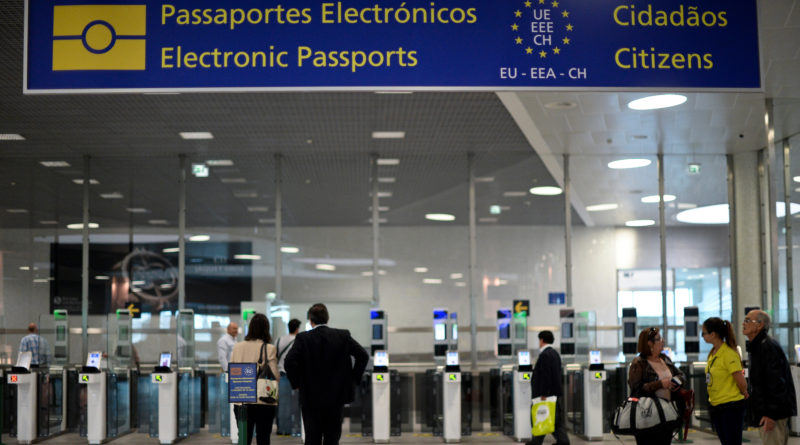Brexit: a proposal to break the deadlock on citizens’ rights
Citizens’ rights, the settlement of the accounts and the Irish border: in none of these areas the UK and the EU have reached an agreement on the terms of separation. So the EU Council last week decided to postpone to December the decision to start trade talks.
On citizens rights, the negotiations are stuck on family reunions for EU nationals in the UK, free movement in the EU27 for British in Europe and whether or not the European Court of Justice should maintain some form of jurisdiction in Britain.
To break the deadlock, the3million, a group defending the rights of people affected by Brexit, proposed a system to secure the position of EU citizens living in Britain. The idea is that any new rule applying to EU nationals in the UK should avoid retrospective conditions, so that people and their families can continue living their lives as they have done until now. Their proposal is an alternative to the “settled status” designed by the British government, which is meant to replace EU rules on permanent residence but fails to guarantee the full set of existing rights.
These are the key features of the system proposed by the3million.
A new “permanent residence”
If they have five years’ residence, EU nationals would be issued a new document stating their right to life-long residence in the UK. This will mirror current EU rights, including equal treatment to British citizens, health and social security entitlements, economic rights and professional qualifications. The only difference compared to the existing system would be an indefinite right to return (at present permanent residence is lost after two years of absence from the country).
If they have been in the country for less than five years, EU nationals would be issued a temporary residence document allowing them time to build permanent residence rights.
Getting the documents
The registration process would be simple, quick and available as soon as an international Treaty under Article 50 is implemented in UK law (but not before). It should be possible to apply online or book an appointment with local authorities, using the European Passport Return Service.
When registering, EU citizens would show evidence of their residence in the UK with their passport or ID card together with an NHS card, National Insurance number, council tax bill or other simple documentation. Families should be able to register together.
The residence document should be issued for free or for a nominal fee and people who already have a permanent residence card (under EU law) or registration certificate should not pay for its replacement.
Unlike the proposed “settled status”, there should be no checks on criminal records, nor biometrics should be taken except for photographs. As suggested by the “settled status”, the requirement of comprehensive sickness insurance should be abolished.
Grace period
After Brexit, there should be a grace period sufficiently long for all EU citizens in the UK to have been made aware of the new scheme, and for the scheme to be operational, considering the high volume of expected applications.
During this period, EU nationals should be entitled to work, study and use social assistance freely like now. By the end of the grace period, EU citizens who have been in the UK before Brexit day should be registered either as permanent or temporary residents.
Family rights
The “settled status” proposed by the UK government prevents EU citizens from being joined by a dependent relative and would make it difficult and expensive to be joined by a spouse. The Telegraph reports that on this point negotiations with the EU are ongoing and the UK is considering a more flexible approach, especially if family members are also EU citizens.
But according to the3million, EU nationals should keep the right to bring family members to the UK, including from outside the EU, as now.
They also say that children born to an EU parent before Brexit should take their parent’s status and be able to pass it on to their children, while children born to an EU parent after Brexit should take their parent’s status but would not be able to pass it on to the next generation. At the point of turning 21, or if no longer dependent on their parents, children would need to obtain their own residence document.
Derivative rights, e.g. those applied to carers, should also be maintained. And there should be special provisions for family members of British citizens resident in the EU if and when they return to the UK.
Legal set up
All these rights should be specified in an international agreement between the UK and the EU. This could be the withdrawal agreement, or a separate citizens’ rights treaty under Article 50, in case Brexit negotiations fail.
The withdrawal agreement should be translated into UK law via primary legislation in a separate law, not as part of an immigration bill. This is because it concerns rights of a closed category, it does not regulate future immigration.
The agreement should also be given direct effect and should be interpreted according to the principles of the European Court of Justice, to protect rights in case national rules would differ over time.
An in-country right of appeal should be available to those who are denied residence documents, with strict time limits and the right to continue working and living as usual until the appeal is concluded.
Key principles
The principle underpinning the3million’s proposal is that EU nationals should maintain their current rights. It also acknowledges the peculiarity of the UK, where there has never been an effective registration system for EU citizens. “No other state in the EU has ever undertaken the mass registration of 3 million or more citizens within a very short timeframe. This is a huge challenge that may plausibly lead to a proliferation of administrative errors and legal complications,” they argue.
“Both sides [the UK and the EU] should acknowledge that, given that the UK will no longer be part of the EU, reciprocity in real life between EU citizens in the UK and British citizens in the EU may require partially different legal solutions. This will therefore require a certain degree of flexibility from both parties.”
This week a group of members of the European parliament wrote to UK Home Secretary Amber Rudd suggesting that even the idea to register EU nationals during the transition period might be illegal, as it will cause discrimination with British citizens.
EU citizens can only be registered in the UK if British nationals are also required to do the same. Cross-party letter to @AmberRuddHR pic.twitter.com/EW8hsZJsJC
— Catherine Bearder (@catherinemep) October 23, 2017
Claudia Delpero © all rights reserved.
Photo © European Union, 2014. Source: EC – Audiovisual Service. Photo: Patricia De Melo Moreira.




